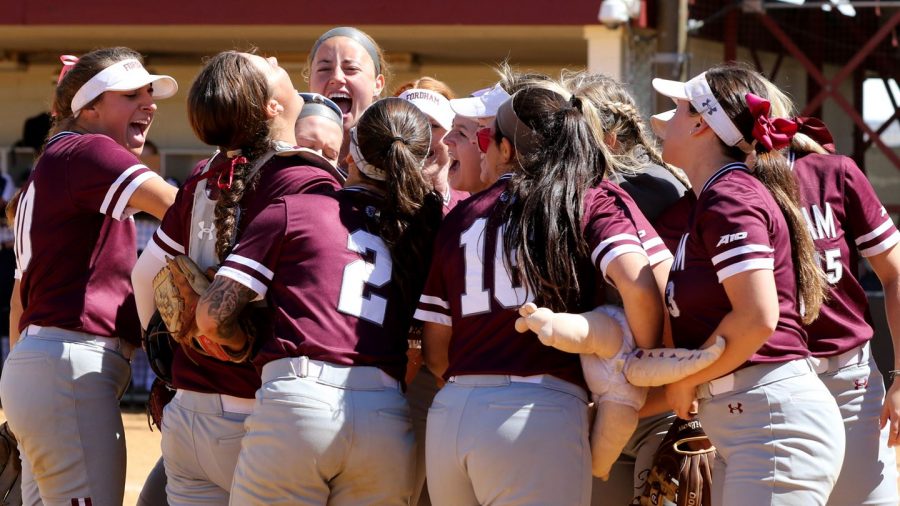Fordham Athletics Participates in Inter-Collegiate Athletic Consulting to Analyze the Department
Along with the appointment of Tania Tetlow, J.D., as the new president of the university, Fordham is looking to create big changes over the 2022-23 school year. On April 7, 2022, Fordham athletics announced in a press release that it would pursue a partnership with Inter-Collegiate Athletic Consulting (ICAC) in the coming year.
The press release stated that ICAC will “conduct a comprehensive review of the Department of Intercollegiate Athletics and develop strategic recommendations for a shared strategic direction that ensures the athletic program’s resources are aligned with the university’s mission and goals.”
Along with the consulting, the university designated a formal steering committee that includes senior staff, faculty, trustees and students to work with ICAC and help guide the process.
Ed Kull, appointed as director of Intercollegiate Athletics at Fordham University in February of 2021 said it’s important that Fordham “assesses how [they] are doing in terms of scholarship rewarding, operational budget spend, facilities maintenance, as well as how Fordham compares to other institutions in the Atlantic 10 and Patriot League.”
According to the press release the review process “will incorporate a complete review of the entire athletic program’s vision and mission utilizing SWOT analysis (strength, weaknesses, opportunities and threats).”
The scope of ICAC’s work will be extensive ranging from conference visibility assessments to efforts on general student life and satisfaction.
Dequece Carter, GSB ’23, and wide receiver for the Fordham football team said he thinks Fordham’s decision to pursue athletic consulting is necessary.
He said he hopes to see “improvements in terms of athletic facilities and student support for Fordham athletics.” He especially hopes to see this improvement surrounding Jack Coffey field, which Carter noted is the primary space used for multiple sports including baseball, soccer, football and a variety of club sports.
Amanda Gurth, FCRH ’23, and thrower on the track & field team shared those concerns. “For my sport there are some things facility and apparel wise that we just don’t have. We don’t have a locker room and many of the other sports do,” said Gurth.
“That has to do a lot with how much money other sports bring in.”
Kull backed many of these concerns, especially in regard to the lack of facilities cited by many student athletes.
“We’re also doing a massive facilities evaluation — so we’re looking at all of our outdoor facilities, indoor facilities, weightroom, sports medicine, locker rooms and offices,” said Kull. “Athletics has also been named as part of the next capital campaign for the university so I’m trying to make sure I align the strategic plan, the facilities plan and the capital campaign so that we can fund the facilities that need to be funded in line with our strategic plan for those sports moving forward.”
As part of the strategic consulting, Kull also stated that Fordham athletics will take another look at Title IX concerns. “As the population of the Fordham campus continues to see more female than male students we need to meet the strategic formula for the NCAA so we ensure we’re funding female athletics at a similar rate of growth that’s taking place in the university,” he said.
Fordham currently has 22 varsity sports and 15 club teams.
“We want to ensure that we are funding women’s sports at the right pace and the right capacity for the size of our campus and population,” said Kull.
In addition to changes in funding and focus, Gurth said she would like to see more interest placed on women’s sports.
“People in the general student body don’t consider female sports as much. There’s more emphasis on male sports in general,” she said.
Beyond the lack of interest in women’s sports, Fordham Athletics hopes that the consulting will help address the general lack of interest and engagement with sports in general at Fordham.
Michael Wright, GSB ’23, and wide receiver for the Fordham football team said he would definitely like to see more student support for Fordham athletics as a result of the consulting process. He said that increased support is necessary and would not only “bring the Fordham community together” but also “contribute to the overall morale of Fordham athletes.”
Kull reflected these concerns stating that athletics should be used to promote the university on multiple levels including elevation of the academic mission, the promotion of school pride, community engagement, increased alumni involvement and the fight against social injustice and racism.
“We’re blessed at Fordham to be a top 50 academic institution on a beautiful campus in the heart of the greatest city in the world … we need to ensure that athletics is continually being used to elevate the next priorities and goals of the university,” said Kull.
“I want athletics to play a pivotal role in excelling the student experience … It’s important to engage our student body to where they look at athletics as fun, entertaining and an expression of school spirit,” said Kull.
The consulting process will take place over the next six to eight months, with changes likely to begin being implemented over the next year to 18 months.
Doing so will allow for the comprehensive review to take place, as well as time for president-elect Tetlow to settle in and adjust to the university.
Despite the length of the process, Fordham students, alumni and staff can look forward to the pivotal changes being made to Fordham athletics that will likely guide the university to new heights over the coming months.







































































































































































































